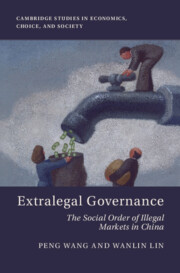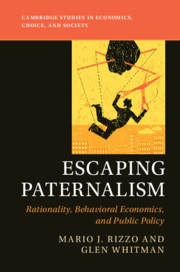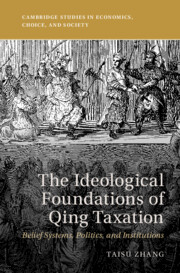Extralegal Governance
Drawing on insights from sociology and new institutional economics, Extralegal Governance provides the first comprehensive account of China's illegal markets by applying a socio-economic approach. It considers social legitimacy and state repression in examining the nature of illegal markets. It examines how power dynamics and varying levels of punishment shape exchange relationships between buyers and sellers. It identifies context-specific risks and explains how private individuals and organizations address these risks by developing extralegal governance institutions to facilitate social cooperation across various illegal markets. Adopting a multiple-case study design to sample China's illegal markets, this book utilizes four cases - street vending, small-property-rights housing, corrupt exchanges, and online loan sharks - to examine how market participants foster cooperation and social order in illegal markets.
- Offers fresh insights and first-hand data on four different types of illegal markets in China
- Develops a socio-economic approach for analyzing illegal markets, risks, and extralegal governance institutions within these markets
- Provide an inter-disciplinary perspective to understand uncertainties and extralegal governance institutions that facilitate cooperation and sustain illegal markets
Product details
September 2025Hardback
9781009622141
200 pages
229 × 152 mm
Not yet published - available from September 2025
Table of Contents
- List of figures
- List of tables
- Acknowledgements
- 1. Introduction
- 2. Developing a socio-economic approach for analyzing the social order of illegal markets
- 3. Unmasking China's illegal markets: research design and fieldwork
- 4. Unlicensed street vending
- 5. small-property-right housing market
- 6. Corrupt transactions
- 7. The illegal online lending market
- 8. Conclusion
- Bibliography.





